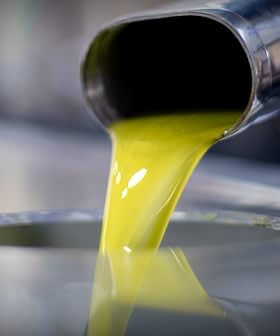Olive Oil and Infection
Various studies show olive oil is beneficial for infection and infectious diseases having antibacterial, antiviral and antimicrobial effects.
 41.7K reads
41.7K readsExtra virgin olive oil contains phenolic compounds with health benefits such as anti-inflammatory, antibacterial, and antiviral properties. In vitro studies have shown that olive oil compounds like hydroxytyrosol and oleuropein have antimicrobial and antiviral effects, making olive oil a promising natural source for preventing and treating infections. Animal and human studies have also demonstrated the benefits of olive oil for infection, showing potential for improving immune responses and reducing skin infections in preterm infants.
Dozens of phenolic compounds have been identified in extra virgin olive oil, each with their own unique health benefits. One of the benefits of these compounds is they have high bioavailability, extensive research reporting the anti-inflammatory, antimicrobial, antibacterial and antiviral properties obtained from these compounds.
Infections or infectious diseases are caused by viruses, bacteria, parasites, fungi and various other disease causing agents. Once an infection is contracted, the human body relies on the immune system to fight the infection through a range of cellular, inflammatory, and immune reactions. Although there are medications to treat infection, naturally derived food sources such asextra virgin olive oil also show promise in preventing and treating infection also.
Early in vitro studies showed that several polyphenols in olive oil have antibacterial properties against human pathogens, particularly oleuropein, tyrosol, and hydroxytyrosol. In a 5 minute room temperature test, hydroxytyrosol, and tyrosol decreased the activity of Listeria monocytogenes, the bacteria contracted from contaminated food that causes the bacterial infection known as Listeriosis.
Decarboxymethyl elenolic acid (EDA), p‑HPEA-EDA, and 3,4‑DHPEA-EDA have been shown to have greater antimicrobial activity than the commercial disinfectants glutaraldehyde and ortho- phthalaldehyde. The phenolic compound oleocanthal has been shown to inhibit the growth of Helicobacter pylori bacteria, a bacteria associated with peptic ulcer and gastric cancer development.
Hydroxytyrosol and oleuropein have been shown to have antiviral activity in a dose-dependent manner. They were shown to inhibit the main viral fusing protein in human immunodeficiency virus (HIV)-1 target cells. Hydroxytyrosol has been shown to disrupt the influenza virus. Oleuropein has been shown to have anti-hepatitis B activity.
Although all of the above benefits have been discovered, these effects have only been demonstrated through in vitro studies at this stage. However, there have also been several animal and human studies that do show the benefits ofextra virgin olive oil for infection.
In rabbits, acute pyelonephritis, a kidney infection caused by bacteria was induced. Doses of 21 mg oleuropein were injected to the animals. Oleuropein alone or in conjunction with regular kidney infection medications prolonged the rabbits survival.
In recent times, researchers have begun to understand the role of intestinal microorganisms (gut microbes) in the overall health of the immune system. Therefore, protection against the growth of certain microorganisms can help in the treatment of some infectious diseases.
Because the skin of preterm infants is not completely developed, they are particularly vulnerable to skin infections due to highly pathogenic microorganisms. Therefore, altering the skin microbiota could reduce infections and provide additional benefits. A case-control study, published in Early Human Development, 2010, aimed to investigate if olive oil (OO) application could influence the skin’s microbiota composition. Thirty-five very low birth weight infants were randomized to either daily skin application of olive oil or routine skin care for the first two weeks of life. A variety of bacteria were evaluated with both applications showing beneficial results. Though no significant differences were established between OO or a regular skincare routine, what the study showed is that OO is just as effective and is also well tolerated by preterm infants as a prebiotic enhancing agent.
A study, published in Journal of Nutritional Biochemistry, 2016, established that changes in gut microbes in subjects with metabolic syndrome had immune enhancing effects. The authors concluding that “the consumption of a Mediterranean diet increased the abundance of the Bacteroides genus member B. thetaiotaomicron and F. prausnitzii, which suggest that the consumption of this diet may increase or maintain a microbiota with antiinflammatory capability.”
A pressure ulcer is a skin lesion, an infected wound that is produced secondary to inadequate blood supply to the area. Pressure ulcers are a common skin issue in immobilized patients. In a study, published in the PLOS ONE, 2015, researchers discovered that topical application ofextra virgin olive oil is a more cost-effective alternative for treating pressure ulcers in immobilized patients with the same beneficial outcomes as commonly used HOFA skin care products.
Fatty acids, also known as dietary lipids, are also involved in the modulation of the immune system and inflammatory processes. Oleuropein aglycone inhibits the proinflammatory molecule TNF‑a. Hydroxytyrosol has been shown to reduce TNF‑a and interleukin‑1 beta with promising effects on other key proinflammatory molecules. Tyrosol has been shown to inhibit COX‑2. And oleocanthal has extensive research surrounding its anti-inflammatory benefits for preventing and treating various health conditions.
A randomized, single-blinded study in Nutrition & Metabolism, 2015, aimed to determine the effect on immune responses when replacing oils in a typical American diet withextra virgin olive oil for a 3 month period. Forty-one obese or overweight subjects were randomized toextra virgin olive oil or a mixture of corn, soybean oil and butter (CON). Theextra virgin olive oil group saw decreases in blood pressure, increases in HDL cholesterol levels, and in direct relation to the immune system, increased anti-CD3/anti-CD28 stimulated T cell proliferation, showing clear immunological health benefits.
Overall, the results of both in vitro and in vivo studies show that OO is beneficial for various infections and infectious diseases. Best of all, it’s a natural food source that is readily available to everyone and comes with no side effects.









